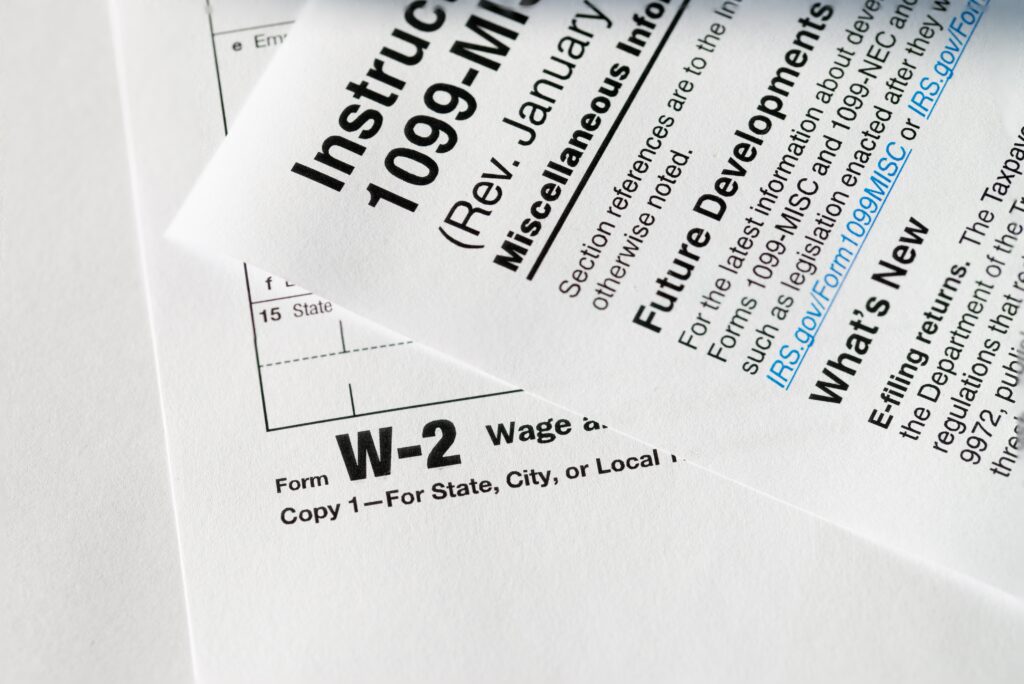Understanding 1099 Forms for Small Businesses: A Complete Guide
Posted on December 20, 2024 by Oozle Media

As a small business owner, managing finances and staying compliant with tax regulations is crucial. One essential part of this is understanding and properly handling IRS 1099 forms, which are commonly used for reporting income paid to contractors, freelancers, and other non-employees. In this guide, we’ll go over the basics of 1099s to help you navigate tax reporting requirements smoothly.
What Is a 1099 Form?
A 1099 form is an IRS tax document used to report various types of non-employment income to the IRS. As a business owner, you’ll often use it to report payments made to independent contractors, freelancers, and other non-employee workers for their services.
There are many types of 1099 forms, but the one most relevant to small businesses is the 1099-NEC (Non-Employee Compensation). This form is issued to report payments of $600 or more made to a non-employee during the year. In some cases, you might also use 1099-MISC to report other types of payments like rents, prizes, awards, or legal settlements.
When Are 1099s Required?
As a small business owner, you’ll need to issue a 1099-NEC form if you meet the following criteria:
- The payment was made to a non-employee: This could be a freelancer, contractor, or anyone who performed work for you but is not classified as an employee.
- The payment was made in the course of your business: Personal payments do not require a 1099.
- Payments totaled $600 or more in a year: If you paid $600 or more to a contractor over the course of the year, you’re required to issue a 1099.
- The payment was made via cash, check, ACH, or similar means: Payments made via credit card or third-party payment processors like PayPal or Venmo generally do not require a 1099. These are reported separately by the payment processor on a 1099-K.
Important Deadlines
- January 31: Send the completed 1099-NEC form to your contractors and file a copy with the IRS. If you miss the deadline, you may be subject to penalties.
- February 28 (or March 31 if filing electronically): This is the filing deadline for other types of 1099 forms, like the 1099-MISC.
Step-by-Step Guide to Filing 1099 Forms
- Collect W-9 Forms: To make the process easier, request a completed W-9 form from every contractor before you pay them. This form provides the contractor’s name, address, and taxpayer identification number, which are all necessary for filing 1099s.
- Complete the 1099-NEC Form: Using the information from the contractor’s W-9, fill out the 1099-NEC with:
-
- Your business’s name and EIN
- The contractor’s name, address, and TIN
- The total amount paid during the year
- Send the 1099-NEC to the Contractor: By January 31, mail or electronically deliver a copy of the 1099-NEC form to each contractor.
- Submit the Form to the IRS: You can file the 1099-NEC form either electronically through the IRS FIRE (Filing Information Returns Electronically) system or by mailing a paper copy to the IRS. Filing electronically is generally faster and provides immediate confirmation.
What Are the Penalties for Failing to File?
The IRS imposes penalties for failing to issue or file 1099 forms on time. These penalties can range from $50 to $290 per form, depending on how late you file, with a maximum penalty of over $500,000 for small businesses. To avoid penalties, it’s best to file on time and ensure all information is accurate.
Tips for Managing 1099s for Your Small Business
- Use Accounting Software: Many accounting software programs offer 1099 tracking and filing tools that can simplify the process.
- Stay Organized: Keep track of payments made to contractors throughout the year. This will make it easier to identify who needs a 1099 and how much you paid them.
- Verify Contractor Information: Collect W-9s early and review the information for accuracy. Errors on 1099s can lead to processing delays and potential fines.
- Consult a Tax Professional: Tax regulations are complex, and a tax professional can help ensure you’re filing accurately and taking advantage of any tax benefits for your business.
Final Thoughts
Filing 1099 forms may seem tedious, but it’s a crucial part of running a compliant business. Staying on top of 1099 requirements not only avoids potential penalties but also helps build strong, professional relationships with contractors and freelancers by showing that you’re handling tax matters responsibly. By understanding these 1099 basics, you can simplify your tax season and keep your business running smoothly.
Categories: Tax Tips


Leave a Reply